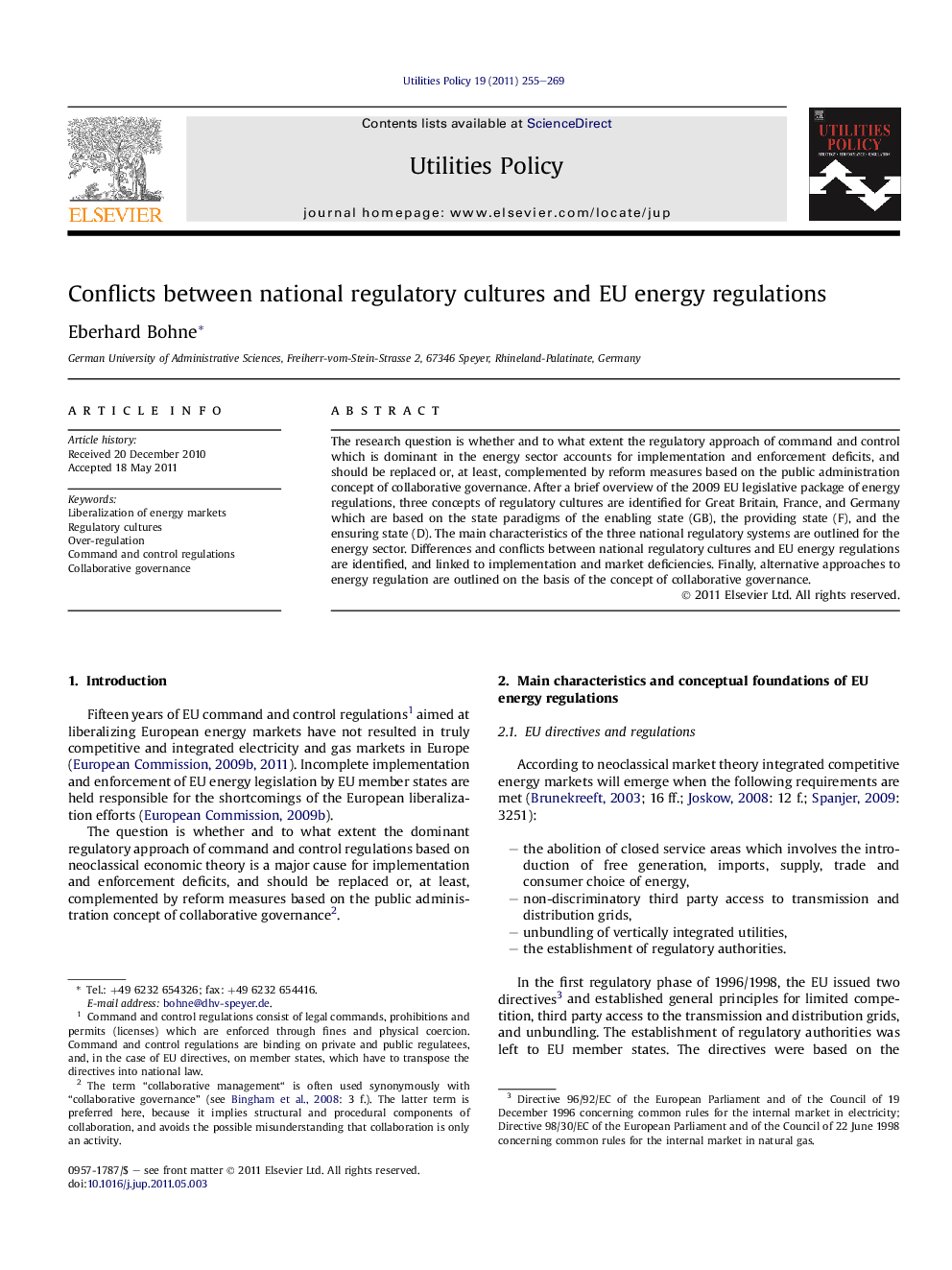| Article ID | Journal | Published Year | Pages | File Type |
|---|---|---|---|---|
| 999264 | Utilities Policy | 2011 | 15 Pages |
The research question is whether and to what extent the regulatory approach of command and control which is dominant in the energy sector accounts for implementation and enforcement deficits, and should be replaced or, at least, complemented by reform measures based on the public administration concept of collaborative governance. After a brief overview of the 2009 EU legislative package of energy regulations, three concepts of regulatory cultures are identified for Great Britain, France, and Germany which are based on the state paradigms of the enabling state (GB), the providing state (F), and the ensuring state (D). The main characteristics of the three national regulatory systems are outlined for the energy sector. Differences and conflicts between national regulatory cultures and EU energy regulations are identified, and linked to implementation and market deficiencies. Finally, alternative approaches to energy regulation are outlined on the basis of the concept of collaborative governance.
► The study identifies distinct regulatory cultures for GB, F and D. ► It analyzes their effects on national implementation of EU energy regulations. ► The state paradigms of the enabling state, providing state and ensuring are used. ► National regulatory cultures are responsible for implementation and market deficits. ► Command and control regulations should be complemented by collaborative governance.
